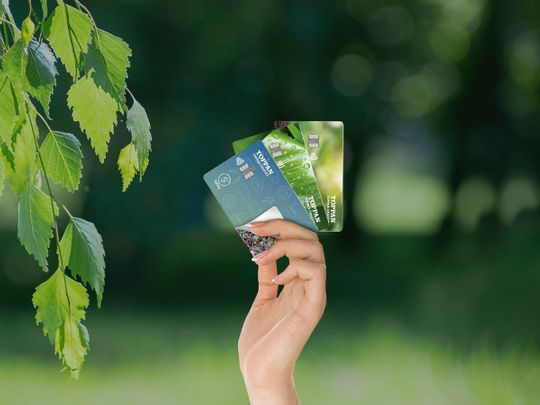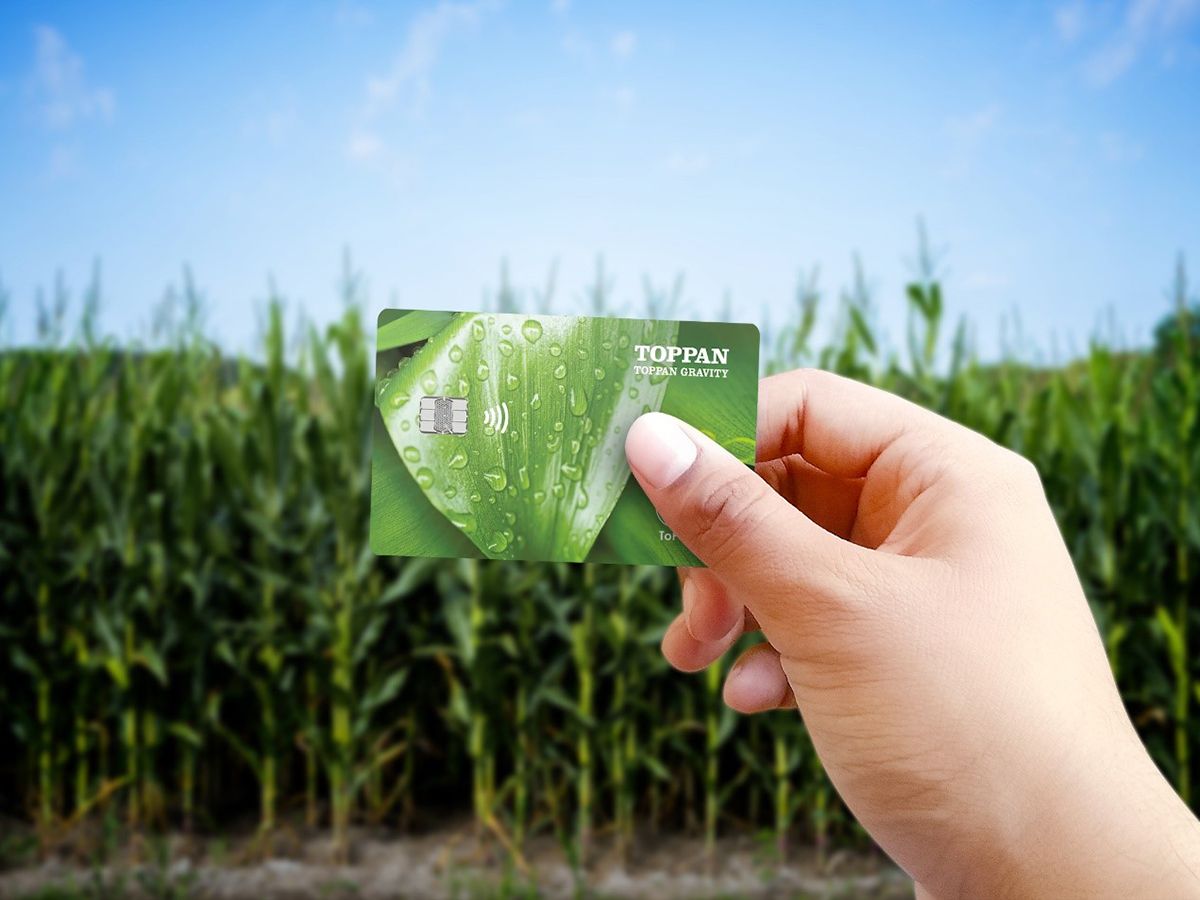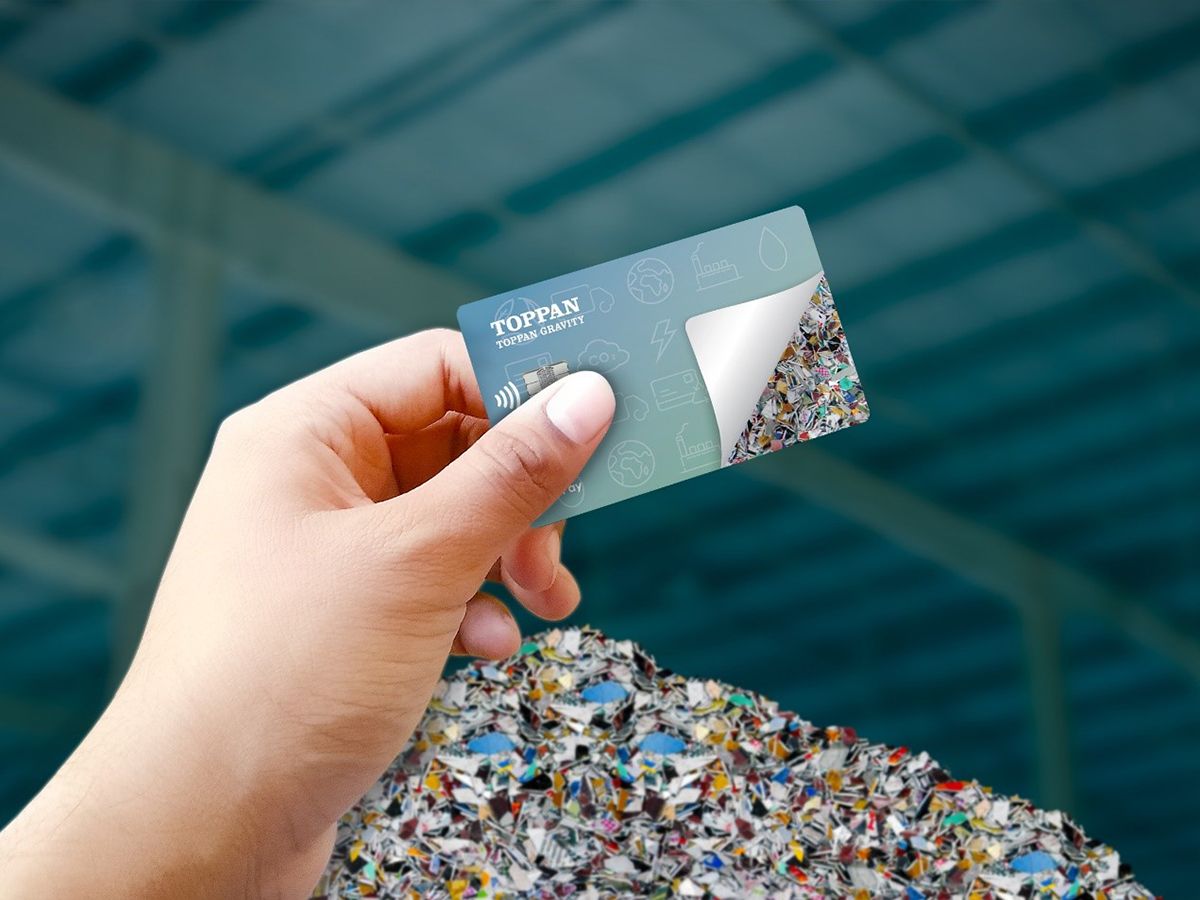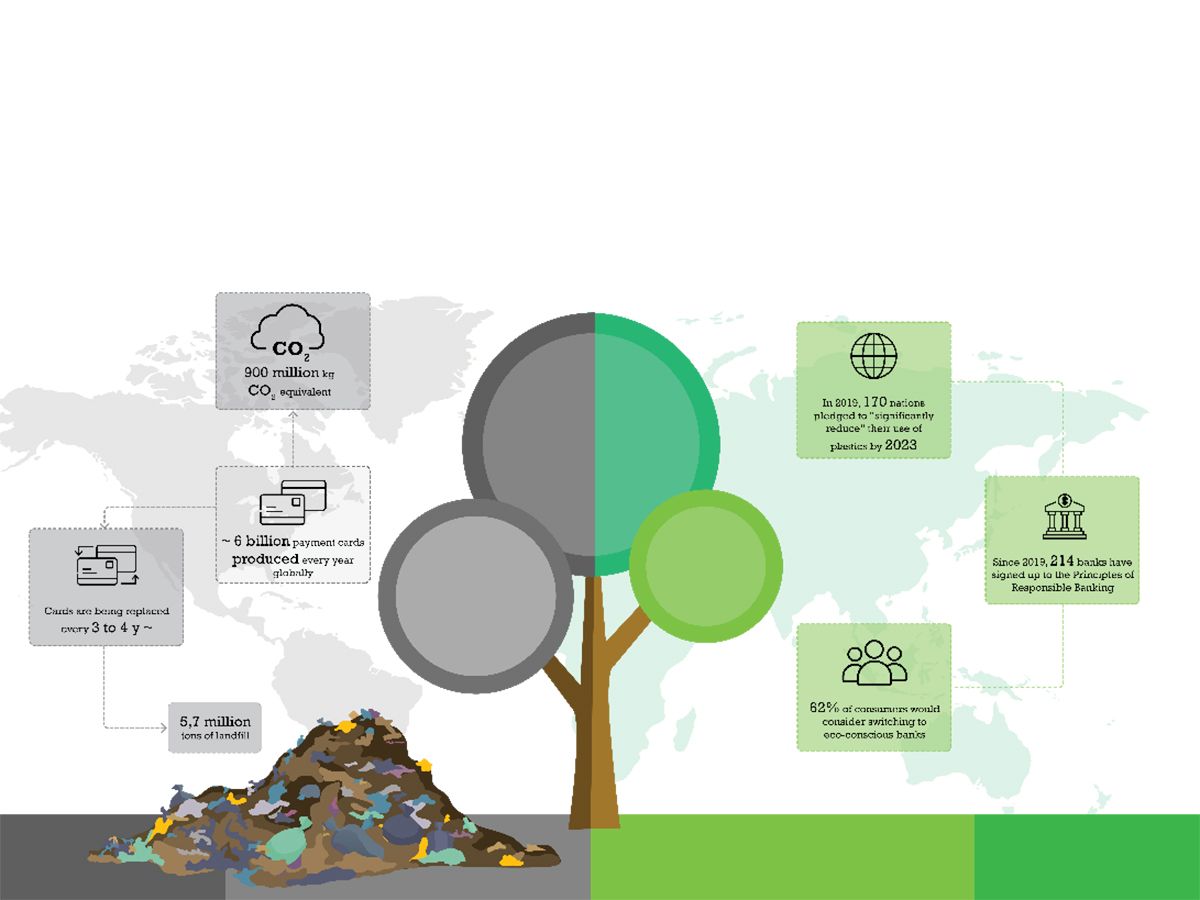
Toppan FutureCard, a Toppan Gravity company, is a UAE-based global provider of end-to-end card solutions with the focus on payment, ID, transport, telecom, loyalty, and retail sectors. The company is responding to market demand for green solutions with a new range of eco-friendly products made in the Emirates. Besides offering the largest portfolio of eco-friendly cards, Toppan FutureCard aims at building a greener world through realising sustainable business operations and investing in green initiatives such as tree planting and beach clean-ups.
The company has launched its OXYGEN cards for the payment, transport, telecom and commercial markets, using the promotional hashtag #MoreOXYGEN. Toppan FutureCard’s most compelling OXYGEN product is the OxyCYCLE PVCr card, the first smart card made of 100 per cent recycled polyvinyl chloride (PVC), without the use of any virgin PVC. Another significant product is the OxyPLANT PLA, the first smart card with a card base made of 100 per cent polylactic acid (PLA), a polymer made from non-edible corn starch. “We are pleased to offer environmentally friendly payment cards, made from sustainable and recycled resources, while maintaining superior card quality and resistance combined with cutting-edge technology and features,” says Jean-Pierre Ting, Managing Director of Toppan FutureCard.
Its new strategy accords with the UAE’s aim to realise a sustainable environment and infrastructure as part of its Vision 2021 approach. Last year, the country reiterated calls to businesses to manage their impact on the environment and embed sustainability across their operations by launching the Target Climate initiative.
Lowest carbon footprint compared to other cards in the market
Toppan FutureCard’s OXYGEN products have been launched following several years of research and development by internal and external studies. As part of its research, the firm evaluated a number of different alternatives, including recycled PVC, recycled polyethylene terephthalate (PET), recycled paper and polylactic acid (PLA), a polymer made from renewable resources.
The OxyPLANT PLA card, with a 100 per cent PLA base made from non-food materials, uses 26 per cent less water and 81 per cent less virgin PVC than conventional cards and its material, in addition, is biodegradable. PLA cards will be a game changer because they are non-petroleum-based and non-toxic if incinerated, while helping avoid plastic waste.

The OxyCYCLE PVCr card, which uses 100 per cent recycled PVC, claims even more impressive credentials. As of today, with an 8 per cent lower carbon footprint than conventional cards, it has the lowest carbon footprint than any other card available on the market. In addition, 42 per cent less water and 17 per cent less energy are used in its manufacture.
Toppan FutureCard purchased in 2020 about 23 tonnes of recycled PVC to produce its OxyCYCLE PVCr card, which is made from 100 per cent recycled PVC. Competitors are only able to offer smart cards that comprise 82-85 per cent recycled plastics.

The company has conducted a life cycle assessment (LCA) study in co-operation with, and certified, by European consultants, with five impact categories in line with ISO standards 14040 and 14044. Toppan FutureCard’s OXYGEN cards contain the highest percentage of eco-friendly material substitution; together, the cards help to reduce air and plastic pollution, since the world is producing too much standard plastic today, the company says. Studies show that plastic pollution reduces oxygen levels in the ocean and in the air by harming beneficial bacteria in the environment.
An eco-friendly payment solution
Taking only payment cards into account, Statista data shows that there were 20.48 billion payment cards in circulation worldwide as of 2017, the latest year for which aggregate figures are available. About six billion new payment cards are issued each year, primarily made from virgin PVC. Those six billion cards equal the weight of 150 Boeing 747s, producing a carbon footprint equal to 500,000 passengers flying from New York to Sydney.

The majority of cards on the market today are made from virgin PVC. As statistics show most cards are being replaced every three to four years. Cards made of standard PVC regularly end up in landfill as in most cases, the card is simply thrown out.
As a smart card manufacturer, producing millions of plastic cards yearly, Toppan FutureCard understands this issue. As per the company, developing an eco-friendly strategy to further protect the environment became one of its main concerns and is the motive behind Toppan FutureCard's introduction of eco-friendly cards. The OXYGEN cards are used by all major payment schemes such as VISA, Mastercard and UnionPay. Toppan FutureCard has successfully provided a number of leading commercial institutions in the EMEA region with eco-friendly payment cards, which allows business partners to enhance their offering with sustainable products.
Rising demand for sustainable solutions
The products cater to rising demand for more sustainable solutions. A majority of UAE residents want to live more sustainably and are willing to take concrete action to do so, according to recent research from the Boston Consulting Group. The current situation demands such changes in approach and these products come across as a game changer in the industry.
Toppan FutureCard’s products bring value to business-to-business as well as business-to-consumer companies and give the industry the right oxygen needed in this pandemic. The campaign #MOREOXYGEN is here to stay, leading the way to a more sustainable future.
For more information, visit Toppanfuturecard.com




